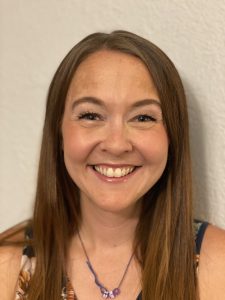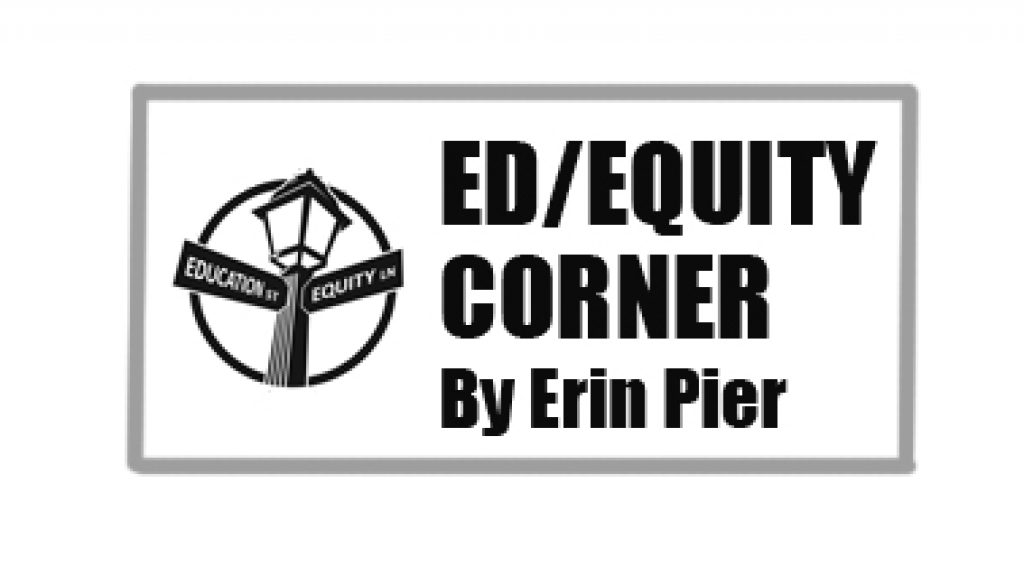An Education Unlike Any Other
Reflections Of A Year Of Schools, Interrupted

I left my in-person job for the last time on a Thursday in March, under the impression I was beginning a three-week “extended spring break.”
COVID-19 had just hit Colorado, and none of us were prepared for exactly what that meant. As the staff parted ways with our close-knit high school community, we told the students it would only be a few weeks before we’d be right back together. As weeks turned into a month, and a month into two, it dawned on us that we had no idea when we’d actually be “right back together.”
Prom was canceled, then graduation. Summer school followed suit. Nine months later, and we still have yet to return to my school in any “normal” capacity.
As the disappointments, heartbreaks and fears piled up, there were moments where it felt like 2020 might never end … like the doom and gloom of an uncontrolled pandemic coupled with a contentious election and a nation more divided than ever before might actually be the very end of life as we know it. But here we are, December 2020. And while the pandemic rages on, and our divisions remain, we made it to the end of another year.
With most of 2020 now in the rearview mirror, those of us at Park Hill Neighbors for Equity in Education (PHNEE) thought it might be a good time to reflect on our past columns, and the way in which current events affected so many aspects of equity in education this year.
Missing Courtney
We begin with February, a time of innocence, a time when PHNEE could focus on something that, while inequitable, was at least something we were accustomed to addressing: schools, choice and values. In February, PHNEE member Margaret Fogerty wrote in these pages about disparities in our neighborhood schools, opportunity hoarding, and how our choices reflect our values.
In March, we reflected on the sudden loss of Courtney Everts Mykytyn. Courtney was PHNEE co-founder Andrew Lefkowits’ cohost on the podcast, “Integrated Schools,” and a nationally known advocate for equity in education. She emphasized “intentionally, joyfully, and humbly” integrating schools, and encouraged parents to recognize the benefits of diversity. We remember Courtney, and think of her as we carry on her mission.
As the uncertainty of April cast a shadow, we reflected on how COVID-19 calls for collective action to benefit the greater good — and how it is possible that we could extend that thinking when it comes to creating equitable schools.
May and June followed a similar suit, with an emphasis on the impacts of the pandemic. As federal mandates for standardized testing were excused for the spring, May’s column offered a rare potential benefit that could emerge from the pandemic: an opportunity to restructure the School Performance Framework, and create new measures of success that don’t include standardized testing.
‘We all want the same’
In June, PHNEE explored the impact of remote learning on four Greater Park Hill neighborhood schools, by connecting with teachers and leaders at Hallett Academy, Smith, Stedman and Park Hill elementary schools.
In July, in the wake of nationwide protests against systemic racism, I returned to the PHNEE column after a brief hiatus and reflected on my own personal experience with law enforcement in the classroom. When schools penalize students instead of helping them, they directly contribute to the school-to-prison pipeline. In my opinion, DPS’ decision to remove police from schools wasn’t just the right choice to make, it was the only choice to make.
In August, we continued our focus on the impacts of systemic racism by interviewing two Park Hill residents, Delicia Balgaard & Marilyn Mills-Walker, who shared with us their perspectives as mothers of Black children and grandchildren in our neighborhood schools. “I wish white parents knew and believed that we all want the same for our children . . . better life, education, socioeconomic status, etc. No one group has a lock on this dream. It is the dream for all,” noted Mills-Walker.
In addition, these women shared how schools can develop (or improve) antiracist practices in the classroom, and what white parents can, and should, be doing to teach their children about antiracism.
As fall descended, so did the return to remote learning, and with it September’s article on the long-term crisis of COVID-19. We explored the impact on our individual progress through Maslow’s Hierarchy of Needs, noting how divisions in wealth, class, safety and security are widening at an exponential rate, and directly impacting our children in schools.
In October, we heard the call of our neighbors, hungry for actionable ways they can engage in antiracist work right here in our community. While there is no quick fix for the racism, injustice and inequity, there are steps we can take everyday that will lead us in the direction of meaningful change. Five actions we recommend are: be an active voter, put your money where your heart is, show up for racial justice and equity events, educate yourself, and educate your children.
What the new year brings
We took one of those action items to heart last month, when we implored all of you to keep equity and education in mind as you cast your ballots for local and federal offices. Both elected and appointed leaders have an opportunity to advance (or suppress) issues related to the pandemic, equality, and the inequities of remote learning; with their policies directly impacting teachers, students, and families.
We hope you were able to make it to the polls (or the mailbox!) last month, and can say that at PHNEE, we’re thankful to see that the incoming leadership in Washington has plans to make education a priority once again. We are also thrilled with the passage of ballot measures that will directly impact our DPS students.
This year has been unlike any other. The onset of a global pandemic has only widened the already stark divisions that create inequity in education; and while the increased awareness of the impact of systemic racism is a step in the right direction, it only foreshadows the deep work required to make systemic change.
At PHNEE, we commit to engage our community in leading the way towards improved equity in our neighborhood elementary schools through awareness building, shared resources, and policy changes. We hope that in the new year we are able to come together as neighbors, parents, educators and friends, to reimagine what education can be: a system built on equity and justice and a system that ensures all of our children have opportunities to thrive.
You can view the complete columns that were published this year at phnee.org/blog, or by visiting past issues of this newspaper at GreaterParkHill.org.
Thank you for being a part of our journey during the wild ride of 2020. We look forward to 2021, and hope less stress and better health await us all. Wishing you and yours a joy filled holiday season, and a very, very Happy New Year.
Don’t forget to register to join us on Dec. 9, from 7 p.m. to 8:30 p.m. for EdEquity Corner, a monthly zoom conversation sponsored by PHNEE for the entire community. You can register at https://tinyurl.com/EdEquityDec2020. For more information or to get involved with PHNEE, email info@phnee.org.
Erin Pier is a mother of three, Stedman parent, and school psychologist at AUL Denver. She is an active member of the Park Hill Neighbors For Equity In Education, which works toward diversity, equity, and inclusion in all schools in the neighborhood.

